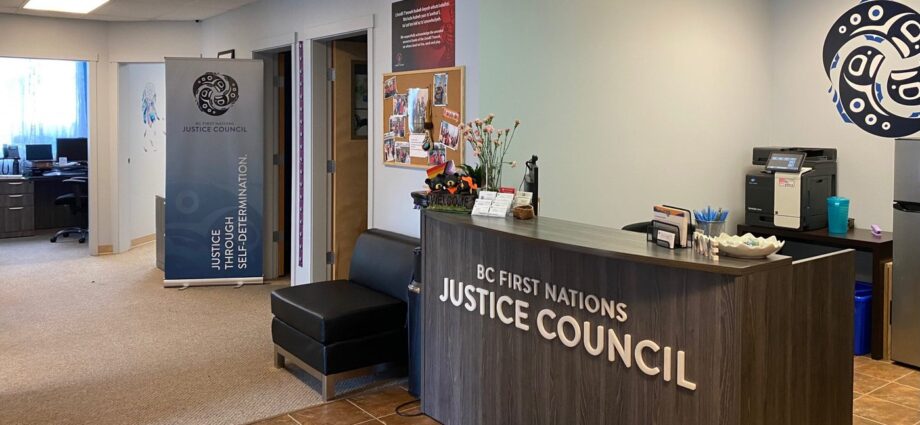
By Alexandra Mehl, Local Journalism Initiative Reporter, Ha-Shilth-Sa
April 11, 2023
Since the signing of the BC First Nation Justice Strategy in 2020, a carefully outlined plan with 43 actions to reform the system and restore Indigenous legal traditions, one of the priorities outlined is the implementation of 15 First Nation justice centres throughout the province.
The first four centres in Prince Rupert, Prince George, Merrit, and virtually marked their opening in January 2022.
In late 2022 the BCFNJC announced that the next centres to be opened will be in Nanaimo, Victoria, Vancouver, Surrey, and Kelowna in 2023.
Indigenous people in British Columbia are overrepresented within the justice system, sitting at thirty five per cent of those incarcerated.
With the implementation of the centres, the justice council’s aim is to reduce the number of incarcerated First Nations, redirect them away from involvement in the justice system, Indigenize the system, and provide accessible support when navigating the courts.
“When you think about the history of the justice system and the interactions of it with Indigenous people, it’s been devastating in a lot of ways,” said Attorney General Niki Sharma. “The laws have worked to colonize people and destroy their own ways of deciding things.”

B.C.’s 2023 budget has committed $44 million to implement and expand the BCFNJC centers, with 10 opening in the next two years and expand to 15 centers by 2026.
Sharma said that she hopes these 15 centers only mark the start of implementation across the province.
“There’s a lot of decisions on where to put them and how to best serve and where the highest need is,” said Sharma. “With remote areas we have to build the proper connections to make sure that centre is serving as many people as they can.”
When centers are set up the BCFNJC is focused on community needs, which inform the service to make it “specific to the area,” said Sharma.
Elmer Frank, elected chief counselor of the Tla-o-qui-aht First Nation, said that one of the barriers that should be considered for remote communities is the cost of transportation.
Having centers situated on Nuu-chah-nulth territory is important so that the nations’ values can be implemented within the facility, said Frank.
“If it was in Tla-o-qui-aht or Nuu-chah-nulth territories we would be able to request that our cultural values be included in how the operations of the centres are,” said Frank.
“I think that [the centres] really provide a lot of safety because of the fact that there’s now another resource that would be helpful for providing them the necessary information required for their issues,” added Frank. “I think it’ll be really helpful if those centres can provide that kind of comfort to our people who have to live away from home.”
In the next year efforts will be focused on formalizing roles for elders, recruiting more Indigenous people to work within the justice sector, and increasing community justice programming, reads a recent press release.
Subscribe to our newsletter.
“Longer term work is the work on understanding Indigenous legal orders and how we, with our colonial justice system, can kind of step back and let that take over,” said Sharma.


